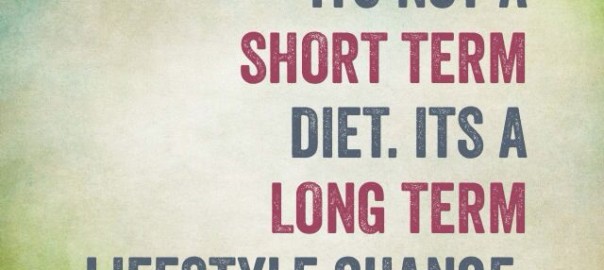
Living Low Carb – What to Expect
Taking the mystery out of the low carb lifestyle is the first step to a better you.
Low carb diets are becoming increasingly popular – and for a variety of reasons. While many health-conscious people begin a low carb diet in order to lose weight or due to gluten insensitivity, many adhere to the diet for the other health benefits they notice, including more energy, a more balanced mood, and better concentration. Indeed, reducing carbs from your diet may be the simplest, most effective, and healthiest way to manage your weight and improve your overall health.
What is Low Carb?
Low carb dieters simply avoid foods containing grains and/or sugar – foods that are high in “bad” carbohydrates. Fiber is another type of carbohydrates which should be consumed because they are “good” carbs. So Low Carb means to reduce the intake of “bad” carbs because such carbohydrates are converted into glucose, a kind of sugar, once ingested. While the body requires some glucose for energy, most people in the western world consume far more carbohydrates than the body needs for energy purposes. Combining over-consumption of carbohydrates with a sedentary lifestyle can result in severe health problems such as insulin resistance (a precursor to diabetes), depression, and obesity. Low carb diets replace this excess carb consumption with healthier options such as lean proteins, healthy fats, fibre, fruits, and vegetables. Have more energy and enjoy a better mood with simple changes to your eating habits.
Low Carb Common Terminology
When reading and talking to others about low carb, you’ll definitely hear the term carb counting or net carb. Carb counting simply a count of how much a food item is expected to impact blood glucose levels. It’s an approximate science, but it helps you understand how many “bad carb” being consumed – and we therefore want to keep this number as low as possible.
Simple Example:
Take a look at the nutrition facts for Bakers Deluxe Dream Bread (Rye). It has 9g of carbohydrates, and 8g of fibre
This product will have a carb count of 1, or 1g net carb. Fibre is a type of carbohydrate, which is why it is shown as a sub-item of carbohydrates. We want fibre, however, because fibre is essential to digestive health and has minimal impact on blood glucose levels. When shopping online, you can sort products in each category by carb count.
More complex example:
There are other types of carbs which we might subtract from total carbs because they have minimal or reduced impact on blood glucose levels. Take a look at the nutrition facts for Andre’s Carbo Save Mini-Cookies. It has 13g of carbohydrates, 1g of fibre and 10g of polyol/sugar alcohols Polyols and sugar alcohols are neither a sugar nor an alcohol (you can’t get drunk by it). Simply, they are a class of naturally derived sweeteners that provide sweetness without the full glycemic impact of sugar. When products with sugar alcohols are eaten in small quantities (by adhere to the serving size, for example), net carbs = 13g – 1g fibre – 10g polyol = 2g net carb.
There are some “gotchas” with sugar alcohols, which is why we treated this as a separate example. Things you should consider:
- Everything in moderation – stick to serving sizes and eat them only as occasional treats
- There are many different types of sugar alcohols, each with different glycemic index. See a comparison here.
- For the most part, sugar alcohols do not get absorbed well by the digestive system. Therefore, eating too much can cause abdominal discomfort or a laxative effect.
- Glucose, Insulin, and Ketosis
When reading about low carb living, you are likely to come across the terms “glucose,” “insulin,” and “ketosis”. When carbohydrates are digested, they are converted into glucose, a kind of sugar.
Insulin is produced to either use the glucose for immediate energy or to store the excess glucose as fat.
When too many carbs are consumed, the resulting insulin production can cause weight gain and energy crashes. Ketosis is a condition where your body has depleted its glucose stores and is using fat stores for energy instead.
Benefits to Low Carb
Whether you want to lose weight, increase energy and concentration, or all of the above, low carb diets can effectively and healthily help you meet your goals. Low carb diets can be especially helpful for those who are overweight or suffering from other health problems such as high blood sugar and diabetes. For those who enjoy a busy lifestyle, a low carb diet can help you avoid the energy and mood crash that occurs shortly after consuming carbs – instead giving you sustained energy throughout your day.
Consuming too much carbs is also an increases inflammation. Reducing inflammation within the body in itself provides many benefits.
Contrary to popular belief, fruits are permitted on many low carb diets.
Things You Should Consider When Integrating Low Carb Into Your Lifestyle
The low carb lifestyle does not require you to give up carbohydrates entirely – instead, the focus is on becoming more conscientious about the type and quantity of carbs consumed. Carbohydrates can have a range of qualities such as fibre content and glycemic index, which impact the amount of insulin produced. Consume only carbs which are nutrient dense. On a low carb diet, you are simply reducing or restricting your consumption of simple and/or high-glycemic carbohydrates, which, combined with regular exercise, can quickly and dramatically improve your health. There’s a saying that those who “walk” around the block are still doing laps around those on the couch.
Rules to live by on a Low Carb DietDo’s and Dont’s of Low Carbing
- DO try some of our delicious recipes to help you create amazing, low carb meals.
- DO exercise daily.
- DO eat unrefined, low glycemic, high-fibre carbs
- DON’T eat over processed, “white” carbs and sugary snacks.
- DO include variety in your diet, including plenty of nutrient dense, low carb fruits and veggies, nuts and seeds, dairy, and both meat and vegetarian protein.
- DON’T give up!
Low Carb Books
Due to the overwhelming popularity of low carb diets in recent years, there are plenty of great resources to be found. Reading about the low carb lifestyle can both get you started and keep you going on your path to better health.
Check out some of our favourites low carb books that offer up to date information, scientific studies, recipe ideas, and fitness plans, and get motivated!






